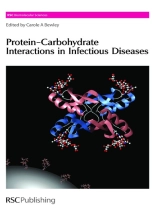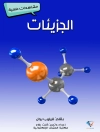Protein-carbohydrate interactions is an exciting area of research with huge potential for development and exploration. These interactions are both widespread and diverse in biological processes and many play a crucial role in cellular recognition, attachment and adhesion. This is particularly true for host-pathogen interactions that lead to infectious diseases; as the surfaces of cells and pathogens display complex carbohydrate structures and carbohydrate binding proteins on their surface. Protein-Carbohydrate Interactions in Infectious Disease is part of the Biomolecular Science Series and provides a comprehensive overview of the subject, with contributions from leading experts in the field. Beginning with a general introduction, subsequent sections include: Atomic basis of protein-carbohydrate interactions, Structures and roles of Pseudomonas areuginosa lectins, Protein-carbohydrate interactions in enterobacterial infections, Retrocyclins: miniature lectins with potent antiviral activity, C-type lectin receptors that regulate pathogen recognition through the recognition of carbohydrates, Synthetic carbohydrate-based anti-malarial vaccines and glycobiology. With full colour throughout and an extensive bibliography this book is ideal for researchers interested in the area.
Inhaltsverzeichnis
Chemistry and Biology;
1: Atomic Basis of Protein-Carbohydrate Interactions. An Overview;
2: Mycobacterial Glycolipid and the Host: Role of Phenolic Glycolipids and Lipoarabinomannan;
3: Structures and Roles of Pseudomonas aeruginosa Lectins;
4: Protein-Carbohydrate Interactions in Enterobacterial Infections;
5: GM1 Glycomimetics and Bacterial Enterotoxins;
6: Retrocyclins: Miniature Lectins with Potent Antiviral Activity;
7: C-Type Lectin Receptors that Regulate Pathogen Recognition Through the Recognition of Carbohydrates;
8: Targeting Microbial Sialic Acid Metabolism for New Drug Development;
9: Synthetic Carbohydrate-Based Anti-Malarial Vaccines and Glycobiology;
10: Studies Towards a Rationally Designed Conjugate Vaccine for Cholera Using Synthetic Carbohydrate Antigens;
11: Carbohydrate Microarrays for High Throughput Analysis of Carbohydrate-Protein Interactions;












